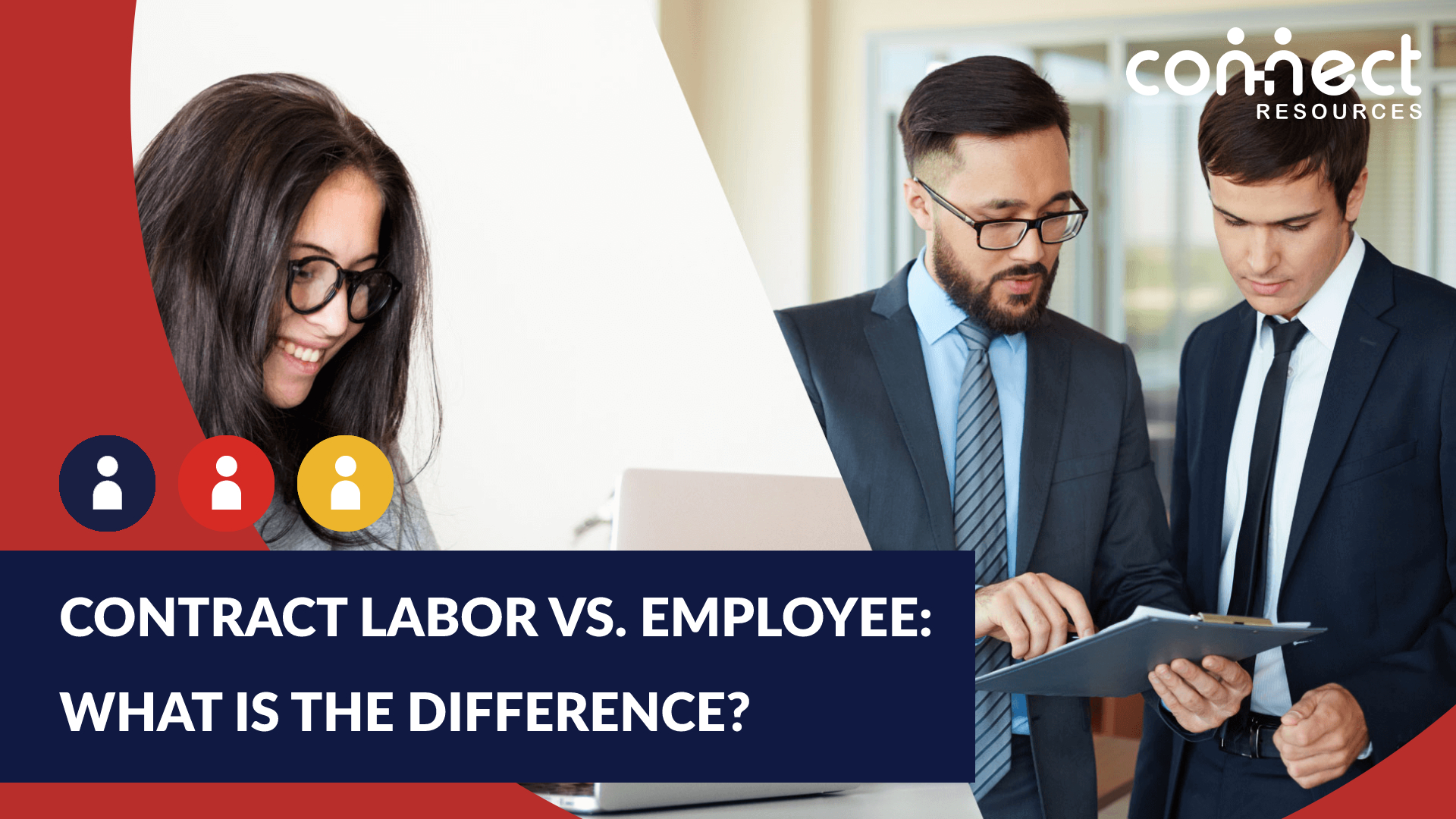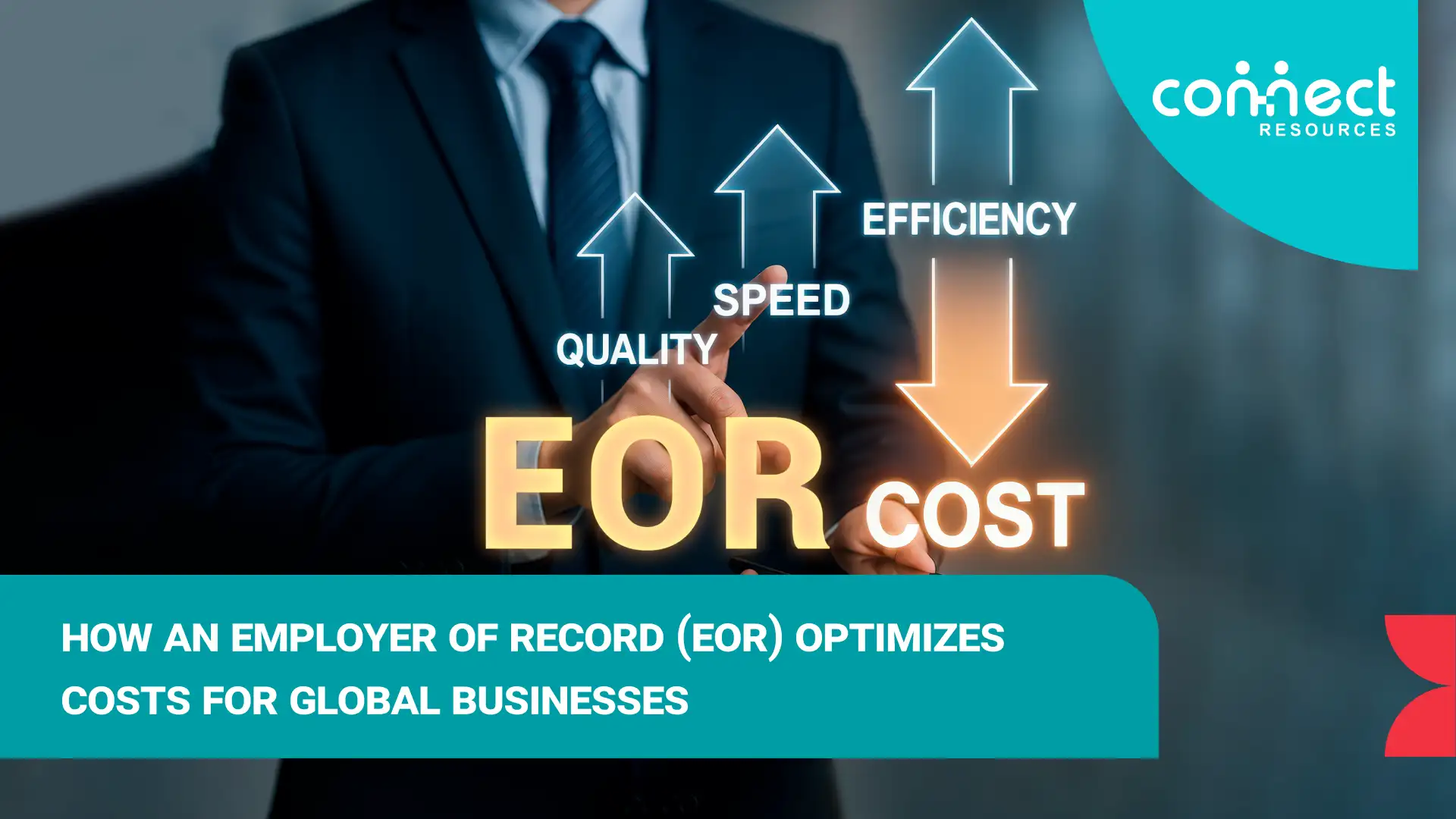It is common that many business people do not know the differences between Contract Labor vs Employee. And both of these employment models involve different legal implications, which are important to understand in any case. In this way, employers or business owners will be able to know which type of worker fits best a companies’ requirements.
In this article, you will learn everything you must know about the differences between contract labor and employees. And by learning about these elements, you will be able to avoid misunderstandings and employee misclassifications in the future. As a result, your company will not have any to face penalties related to this matter. Let’s observe this article’s content:
- What things should you know about Contract Labor?
- How should an employer pay a contract worker?
- Why should employers hire contract laborers?
- What exactly is an employee in a company?
- Why should employers hire employees?
- How many differences do these employment models have?
- Why is it important to avoid employee misclassification?
- Is it possible to convert a contractor into an employee?
- How can Connect Resources help you get more information and guidance?
1. What things should you know about Contract Labor?
In certain cases, companies need to complete particular projects or tasks that their regular employees cannot or should not carry out. Therefore, they choose to hire contract laborers instead of employees in those cases, which can bring them more benefits. But before deciding to hire these workers, it is essential to know about the differences between Contract Labor vs Employee.
First of all, you should know that under written contracts, a company can use contract labor to complete any work. Nonetheless, this employment method is not an official hire because the company is not the one that hires. In fact, hiring an independent contractor means that this worker will not receive a regular salary or employee benefits.
In other words, most contractors have their own businesses and they offer their services to companies that need them. Plus, independent contractors like these are often called self-employed or freelancers, and the common law recognizes them as such. However, it also means that the federal employment laws do not cover them since they are not regular employees.
If you are a business owner and want to hire a contract laborer, it is important to consider some facts. For example, you must consider the payment amount and method, the length of the contract, and many more. Here you will find that information, but if you need more specific information, Connect Resources will provide you with it.
1.1. Other remarkable factors that define a contract laborer
To summarize, these are the main characteristics of a contract laborer, which help to differentiate Contract Labor vs Employee:
- Any contract laborer is usually in control of their own working hours and the tools they use to work.
- And also, they will create their own invoice before or after the job is done.
- Companies can let workers like these go from the position if both parties agree. However, before doing this, they must make sure that it does not break the contract.
- Contract laborers do not need to go through the employee onboarding process since they will be working on particular projects only.
- And lastly, companies do not pay any type of employee benefits to freelancers or self-employed. That includes social security, health insurance, Medicare, state unemployment tax, worker’s comp, and many other benefits that regular employees receive.
2. How should an employer pay a contract worker?
Now that you know what a contract laborer is, you should now learn about the way they get paid. But before we explain it, there are other facts that both the employer and the worker must know. Just as we mentioned before, contract laborers have other names, and “self-employed” is one of them, but why exactly?
Firstly, these workers do not have the same legal responsibilities or obligations as normal employees usually do in any country. In fact, the IRS (Internal Revenue Service) considers them as self-employed, just like the federal employment laws do as well. Therefore, these workers must pay their own taxes, which is usually called self-employment tax in many nations.
On the other hand, it is also important to keep in mind that the employer deducts their wages from the employer’s income. And besides, in order to list how much money should receive the contract laborers, they should receive two forms. The first one is the 1099-MISC and the second one is the IRS Form 1096.
3. Why should employers hire contract laborers?
There are many reasons why company owners and employers should hire contract labor to complete certain tasks or projects. For example, hiring an independent contractor is cheaper than hiring an employee who usually receives a regular salary and benefits. On the other hand, independent contractors are also an excellent solution for temporary jobs, projects, tasks, processes, and any others.
Apart from those advantages, there are many others that you, as an employer or business owner, can enjoy. For instance, employers will not need to train or onboard an independent contractor during or after the hiring process. Therefore, it is possible for both parties to save time and start working on the given project quickly.
And flexibility is another advantage that both the employer and the worker can enjoy as long as the contract lasts. As a matter of fact, freelancers usually work on short-term projects for various companies instead of staying as permanent employees. As a result, it is easier and more comfortable to build short-term relationships with them.
4. What exactly is an employee in a company?
Now, let us define what an employee is, so we can later make a comparison between Contract Labor vs Employee. Employees are known for being regular workers who are on a company’s direct payroll, so they receive a regular salary. Besides, there are other features that most employees share when working in a company, such as the following ones:
- Regular employees work full-time or part-time, but it will depend on the number of working hours that the contract specifies.
- They receive both a regular salary and employee benefits.
- Some of the benefits that employees have are vacation, sick time off, and many other job perks.
- The company that employs them usually provides offer letters or employment contracts. With those, it is possible to determine the terms of the workers’ employment.
- The company also must withhold several taxes from employees, including federal and state taxes, Social Security taxes, FICA, Medicare taxes, etc.
- Although employees can negotiate the salaries that they will receive, most of them do not usually do this.
- Usually, the company provides employees with all the equipment and tools that they need to carry out their tasks. These are usually desks, laptops, computers, phones, and other important supplies.
5. Why should employers hire employees?
Although hiring independent contractors can bring your company a lot of benefits, hiring regular employees should not be discarded. Employees are the most important asset of any company that desires to grow and expand over time. In fact, the most efficient way to build a large and strong work team is by hiring employees.
If you desire to build a synchronized work team, make sure to use efficient recruitment strategies to get the best employees. This way, you will be able to expand your operations and make your business grow exponentially. And besides, keeping your employees happy will motivate them to help you reach your company’s goals effectively.
Another advantage of hiring regular full-time employees is that they can get familiar with the company over time. And thanks to that, it is possible to build long-term relationships between the company and the employees. As a result, those employees will most likely become more efficient and demonstrate better job performance.
6. How many differences do these employment models have?
Now that you are aware of the roles of each employment method, it is time to see their differences. There are many important differences between Contract Labor vs Employee that you must keep in mind. And if you are a professional needing to choose between becoming a freelancer or an employee, this information will be useful.
The 4 main differences between these models are the following ones:
- Employment regulations and laws: as we previously mentioned, the federal and state employment laws can cover employees. However, these laws recognize contractors as independent workers, so they do not cover them.
- The hiring process: employees usually apply for the job and the company offers them the available positions, and then they go through several stages of the hiring process. Meanwhile, contractors offer their services and, if the company needs them, they sign a short-term contract.
- Required tax documents: while employees fill out a W4 form, independent contractors fill out a W9 form since they are taxpayers.
- Payment method: for employees, companies use a payroll system to pay them on a certain basis. But independent contractors usually send their own invoices to the company, so they get paid on a project basis.
7. Why is it important to avoid employee misclassification?
Due to the many differences between Contract Labor vs Employee, it is essential to avoid employee misclassification. And the main consequence of misclassifying an employee is paying multiple and expensive fines as a penalty. Therefore, all business owners and employers must have a clear understanding of the roles of each type of worker.
In case you desire to know more, there are many ways to avoid making this huge mistake. One of them is by checking the contract and making sure there is a stipulated contract length and payment method. If it is a short-term contract with a project basis payment, it is most likely related to an independent contractor.
8. Is it possible to convert a contractor into an employee?
There are four main steps to follow in order to do this, which are the following:
- Determine the status of the worker and switch from 1099 Form to W2 Form.
- Notify your worker of the changes that were made. Remember that both parties must agree in order to complete this process.
- Then, make all the required adjustments so your new employee can start working as soon as possible.
- And lastly, you must add this new employee to the company’s payroll. Remember that you will no longer use the W9 payment method but the W4.
9. How can Connect Resources help you get more information and guidance?
Besides helping you understand everything related to Contract Labor vs Employee, we can also provide you with other services. For instance, if you need to recruit new employees for your company, requesting our recruitment services is your best option. And you can even find more useful HR-related services on our webpage that will help you improve your business.
However, in case you are a professional looking forward to becoming a freelancer, we can also help you with it. And the first thing that you will need is a freelancer visa in the UAE, which our team offers. With our professional guidance, you will be able to avoid delays and achieve your goals in a matter of time.
Would you like to contact our Connect Resources team to obtain more information about the differences between Contract Labor vs. Employee? If you have any questions, please feel free to call us on 00 971 433 16 688. Or you can also email us at contact@connectresources.ae. And then, you will talk to one of our representatives who will gladly answer all of your questions.
If you are looking for the most convenient job opportunities, make sure to visit thetalentpoint.com website. Then, all you need to do there is to submit your CV or resume to search for your dream job easily. Besides, you can also feel free to send an email at contact@thetalentpoint.com, so we can receive your application and review it.









